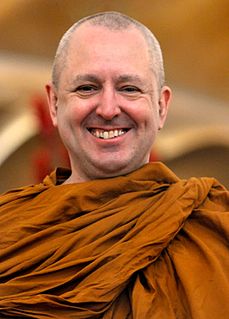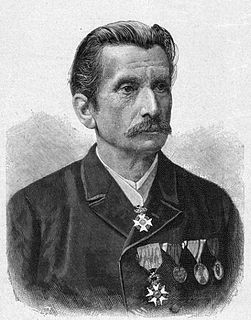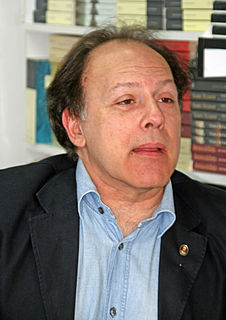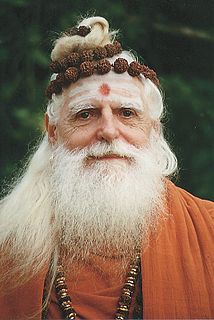A Quote by Fyodor Dostoevsky
By interpreting freedom as the propagation and immediate gratification of needs, people distort their own nature, for they engender in themselves a multitude of pointless and foolish desires, habits, and incongruous stratagems. Their lives are motivated only by mutual envy, sensuality, and ostentation.
Related Quotes
Our modern Western culture only recognises the first of these, freedom of desires. It then worships such a freedom by enshrining it at the forefront of national constituitions and bills of human rights. One can say that the underlying creed of most Western democracies is to protect their people's freedom to realise their desires, as far as this is possible. It is remarkable that in such countries people do not feel very free. The second kind of freedom, freedom from desires, is celebrated only in some religious communities. It celebrates contentment, peace that is free from desires.
I saw sensuality as sacred, indeed the only sacredness, I saw woman and her beauty as divine since her calling is the most important task of existence: the propagation of the species. I saw woman as the personification of nature, as Isis, and man as her priest, her slave; and I pictured her treating him as cruelly as Nature, who, when she no longer needs something that has served her, tosses it away, while her abuses, indeed her killing it, are its lascivious bliss.
People with good work habits have to-do lists that are reasonably prioritized, and they make themselves do what needs to be done. By contrast, people with poor work habits almost randomly react to the stuff that comes at them, or they can't bring themselves to do the things they need to do but don't like to do (or are unable to do).
Trusting people to be creative and constructive when given more freedom does not imply an overly optimistic belief in the perfectibility of human nature. It is, rather, belief that the inevitable errors and sins of the human condition are far better overcome by individuals working together in an environment of trust and freedom and mutual respect than by individuals working under a multitude of rules, regulations, and restraints imposed upon them by another group of imperfect individuals.
We all have to lead our own life, and we only have the one life, and the only people who can live life not according to their own desires are those who have no desires--which is the majority, actually. People can say what they like, they can speak of abnegation, sacrifice, generosity, acceptance, and resignation, but it's all false. The norm is for people to think that they desire whatever comes to them, whatever they achieve along the way or whatever is given to them--they have no preconceived desires.
Not only, in strict truth, was marriage instituted for the propagation of the human race, but also that the lives of husbands and wives might be made better and happier. This comes about in many ways: by their lightening each other's burdens through mutual help; by constant and faithful love; by having all their possessions in common; and by the heavenly grace which flows from the sacrament.
There are two kinds of Riya - Showing off-Ostentation ie pure ostentation and adulterated ostention. In pure ostentation "Riya" a man does a good deed only for worldly benefit. In Adulterated ostentation, a man does a good deed with the intention of reaping the benefits of the world as well as of the Hereafter.
... those who sit in the darkness of passions and whose minds are blinded by ignorance, or, rather, those who have not acquired the 'mind of Christ' (I Cor. 2:16), think that he who has the mind of Christ is foolish, and that he who has it not is sensible. Of these the prophet David rightly states, 'The ignorant and foolish perish together' (Ps. 49:11). Therefore such men twist the whole of Scripture according to their own desires (cf. II Pet. 3:3, 16) and corrupt themselves in their own passions. But it is not divine Scripture that suffers from this, but those who disfigure it!
In the West, there's a myth that freedom means free expression-that to follow all desires wherever they take one is true freedom. In fact, as one serves the mind, one sees that following desires, attractions, and repulsions is not at all freedom, but is a kind of bondage. A mind filled with desires and grasping inevitably entails great suffering. Freedom is not to be gained through the ability to perform certain external actions. True freedom is an inward state of being. Once it is attained, no situation in the world can bind one or limit one's freedom.
He spoke of very simple things- that it is right for a gull to fly, that freedom is the very nature of his being, that whatever stands against that freedom must be set aside, be it ritual or superstition or limitation in any form. "Set aside," came a voice from the multitude, "even if it be the Law of the Flock?" "The only true law is that which leads to freedom," Jonathan said. "There is no other.







































